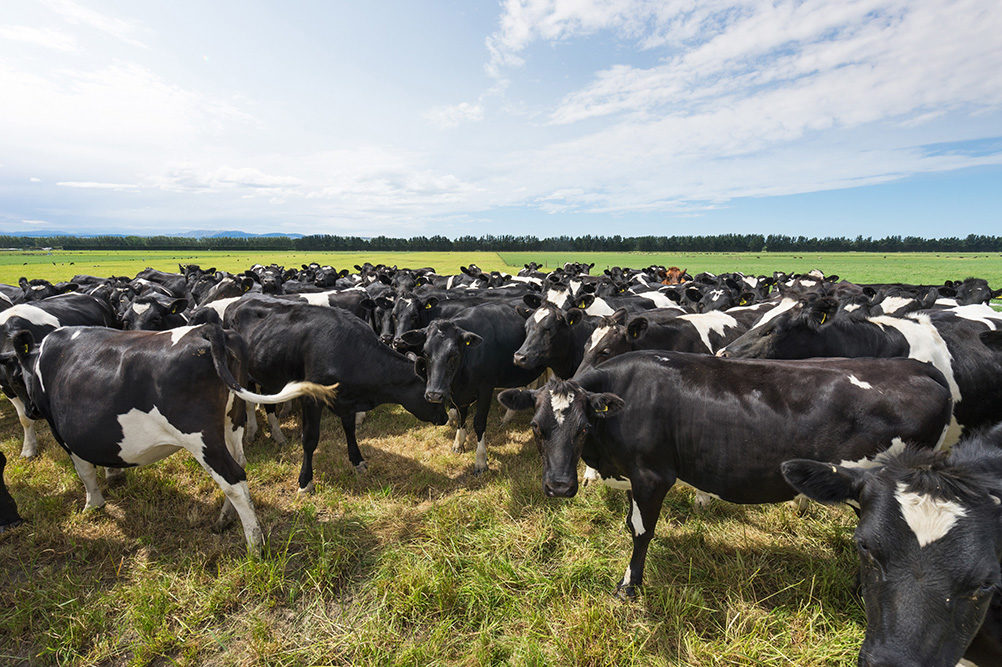The Centre for Climate Action Joint Venture (the JV) has announced it will invest up to $2.5 million to support research on developing a methane vaccine and methane inhibitor for use on New Zealand farms.
The research is co-funded by the New Zealand Greenhouse Gas Research Centre (NZAGRC) and is focused on reducing the methane emissions from cattle, sheep and deer in pasture-based farming systems. The JV and the NZAGRC are the two pillars of the Government’s newly established Centre for Climate Action on Agricultural Emissions.
Research into the methane vaccine has been undertaken since 2007 and is overseen by the Methane Vaccine Think Tank, a group of global vaccine experts. If successful, the methane vaccine would be a world first and would provide a simple, effective solution for New Zealand’s farmers to reduce their methane emissions from animals on farm and meet emissions reduction targets.
The JV will also be investing in a research programme to develop potent inhibitors for delivery from intra-ruminal capsules that could be used by New Zealand farmers to reduce methane emissions from their grazing ruminant livestock.
Methane inhibitors or feed additives offer a real opportunity to lower emissions by reducing the activity of methane-producing microbes (methanogens) in the digestive systems (rumen) of ruminant livestock.
The JV’s Executive Director, Wayne McNee, says these investments align well with the JV’s focus on supporting research and technology to develop practical tools to reduce agricultural emissions in New Zealand, for use by New Zealand’s pasture-based farmers.
“The research underway into a methane vaccine and methane inhibitor is producing promising results and our investment will provide the funding required for continuing this research,” he says.
The JV is a world-first investment fund established in February between Government and major agribusiness companies to help pasture-based farmers in Aotearoa New Zealand reduce their agricultural emissions by 30% by 2030.
The JV’s shareholders are ANZCO Foods, Fonterra, Rabobank, Ravensdown, Silver Fern Farms and Synlait, many of the largest players in New Zealand agribusiness owning 50%, with the other 50% owned by the Crown through MPI. To date shareholders have committed around $170 million over the next four years to the JV.
McNee says the JV’s ambition is to ensure all livestock farmers in New Zealand have equitable access to affordable, effective solutions to reduce biogenic Methane and Nitrous Oxide emissions, with an ambition of supporting a 30% reduction by 2030 and enabling development and adoption of solutions to drive towards ‘near zero’ by 2040.
“The size of the prize for New Zealand farmers is huge if we can achieve this,” he says.
“That is why we are focused on investing in technologies, like the methane vaccine and methane inhibitor, that are already showing the most potential to have the largest impact on emissions reduction for our pasture-based farmers.”
These new investments follow the JV’s announcement in April that it has invested $1.8 million in Ruminant BioTech, a New Zealand-based start-up that is developing a slow-release, biodegradable methane-inhibiting bolus.
McNee says New Zealand’s global customers are setting ambitious greenhouse gas reduction targets, “and if we can’t meet these targets, export revenue that has underpinned our living standards will be under threat. We must confront this reality, and I believe we can meet the challenge.
“We’re focused on scaling up efforts made to date by Kiwi farmers and agri-researchers and forging ahead with investigating new opportunities and investments. We welcome interest from potential new shareholders, technology companies and strategic partners.”
Source: Ag JV












